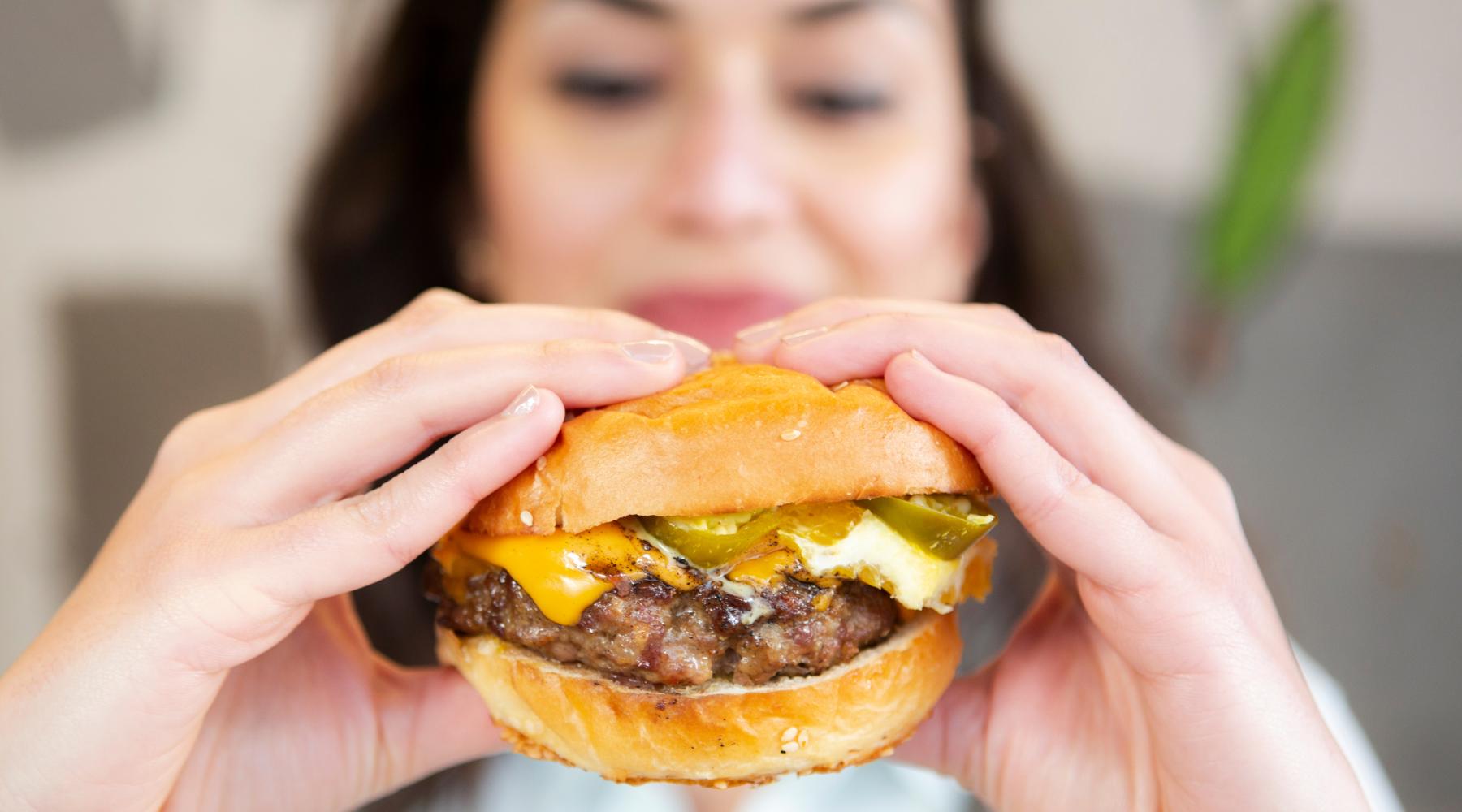Losing weight can be an exhilarating journey, filled with the excitement of seeing those numbers on the scale drop. But then, suddenly, it happens – you stop seeing any progress and reach a dreaded weight loss plateau, that phase where despite your best efforts, the scale refuses to budge any further.
The frustration and disappointment that accompany a weight loss plateau can be demoralizing, making you question whether all your hard work is in vain. However, there's no need to throw in the towel just yet.
When the scale just won’t budge, it’s time to implement some proven strategies. We put together 12 effective steps you can take to break through that stubborn weight loss plateau and continue on your path to a healthier you.
What is a Weight Loss Plateau?
A weight loss plateau occurs when your weight ceases to change, which is common for anyone on a weight loss journey. Despite maintaining careful eating habits and regular exercise, hitting a weight loss plateau can catch most people off guard. It's disheartening to realize that even meticulously planned weight loss endeavors can come to a standstill.

In the initial weeks of embarking on a weight loss journey, experiencing a rapid drop in weight is quite common as well. This phenomenon can be attributed, in part, to the reduction in calorie intake. When calories are restricted, the body taps into its glycogen reserves for essential energy. Glycogen, a form of carbohydrate present in muscles and the liver, contains water as well.
As glycogen is utilized for energy, water is released, resulting in weight loss that is primarily due to water loss. It's important to note, however, that this water-related effect is temporary.
As your weight decreases, a portion of that loss comprises both muscle mass and fat. Muscle plays a crucial role in sustaining the rate at which you burn calories, also known as metabolism. Then, as weight diminishes, metabolism slackens, leading to a reduction in calorie expenditure compared to before.
This slower metabolism subsequently hampers the pace of your weight loss, even if your calorie consumption remains consistent with the levels that initially made it easier to lose weight. When your calorie intake is the same as your calorie expenditure, you hit a plateau.
To overcome this plateau and further your weight loss progress, you must either boost your physical activity or curtail your calorie intake. It's important to recognize that relying solely on the methods that initially yielded success might be enough to maintain your weight loss, but it won't propel you toward achieving further weight reduction.
Read more: Calorie Deficit - The Simple Secret Behind Losing Weight
1. The Low-Carb Advantage
Low-carb diets have garnered a lot of attention in the weight loss arena and for good reason. Research has shown that reducing your carb intake can kick-start your weight-loss engine once again. In fact, individuals who consume 50 or fewer grams of carbs per day experience greater weight loss compared to those following traditional diets.
While the metabolic advantage of low-carb diets is still debated, the hunger-curbing effects and production of appetite-reducing ketones make them a valuable tool in overcoming plateaus.
2. Up Your Exercise’s Intensity
As you shed those pounds, your body's metabolism tends to slow down. This metabolic decline can thwart your weight loss efforts.
Incorporating resistance training into your routine helps preserve muscle mass, a key factor in determining your calorie burn during activities and at rest. This type of training has been shown to be highly effective for weight loss. Aerobic exercises and high-intensity interval training (HIIT) are also potent metabolism boosters, making exercise an essential tool to break through plateaus.

3. The Power of Tracking
Have you ever thought you weren't eating much, only to realize you might be underestimating your food intake? This discrepancy is more common than you think.
Keeping track of your calories and macronutrients provides a clear picture of what you're consuming. Moreover, the act of recording your meals alone can enhance your weight loss progress. By scrutinizing your eating habits, you can make necessary adjustments and break through your plateau.
4. Protein: Your Ally Against Plateaus
Protein is a superstar when it comes to weight loss. Not only does it elevate your metabolism through the thermic effect of food (TEF), but it also triggers the production of hormones that quell hunger and boost feelings of fullness. Ensuring adequate protein intake throughout the day helps safeguard muscle mass and prevent the drop in metabolic rate that often accompanies weight loss. Including lean sources of protein in your meals can be a game-changer in overcoming plateaus.
It's not just the total amount of protein that counts – when you consume it matters too. Spreading your protein intake throughout the day capitalizes on TEF and supports weight loss. Eating protein-rich meals at each sitting can enhance your metabolism and muscle retention, making it a potent strategy to overcome plateaus.
5. Manage Stress for Weight Loss Success
Stress, a common modern-day woe, can derail your weight loss progress. It prompts cortisol production, which not only triggers comfort eating but also encourages fat storage, particularly around the belly.
Managing stress through relaxation techniques and deep breathing can make a significant impact on weight loss. Research demonstrates that stress management programs can lead to substantial weight loss, offering a holistic approach to breaking through plateaus.
Read more: Improve Your Mental Health with the Power of Walking

6. Intermittent Fasting: A Trend Worth Trying
Intermittent fasting has gained immense popularity due to its potential for promoting fat loss and overall health benefits. By extending periods without food, intermittent fasting supports weight loss efforts. Studies indicate that intermittent fasting can lead to a 3% to 8% weight loss and decreased waist circumference. The practice can be tailored to your preferences, making it a flexible strategy to tackle weight loss plateaus.
7. The Alcohol Factor
While a drink or two might seem harmless, alcohol can sabotage your weight loss journey. Not only does alcohol provide empty calories, but it also weakens your inhibitions, potentially leading to overeating. Moreover, alcohol impedes fat burning and contributes to belly fat accumulation. To conquer your weight loss plateau, it might be wise to either cut back on alcohol or consume it occasionally in moderation.
8. Fiber
Adding more fiber, especially soluble fiber, to your diet can be a game-changer in breaking through plateaus. Soluble fiber slows down digestion, enhancing feelings of fullness and satisfaction. Additionally, it can reduce calorie absorption from other foods, aiding weight loss. The role of fiber, particularly viscous fiber, in appetite control and calorie management makes it a valuable tool in your weight loss arsenal.
9. Hydration
Drinking water, coffee, or tea might seem like a minor lifestyle change, but it can yield significant weight loss results. Water has been shown to boost metabolism, especially when consumed before meals. Caffeine-containing beverages like coffee and tea can enhance fat-burning and metabolic rates. Incorporating these beverages strategically into your routine might be the extra push you need to break through your plateau.

10. Sleep-Weight Connection
Sleep is crucial for overall health, and its impact on weight loss is undeniable. Inadequate sleep lowers your metabolic rate, increases hunger-inducing hormones, and promotes fat storage. Lack of sleep can contribute to weight loss plateaus by hindering your body's ability to burn calories efficiently. Prioritizing quality sleep can reignite your weight loss progress.
11. Being Active Beyond Workouts
Physical activity isn't limited to structured workouts. Non-exercise activity thermogenesis (NEAT) plays a crucial role in calorie burn. Activities like fidgeting and changing posture contribute significantly to your metabolic rate. Simple changes like standing more often and using a standing desk can elevate your calorie expenditure and help you break through your plateau.
12. Beyond the Scale
While the scale is a common metric for tracking progress, it's not the only indicator of success. Body composition changes, such as muscle gain and fat loss, might not always reflect on the scale. Remember that muscle is denser than fat, and it's possible to lose fat while maintaining your weight. Assess how your clothes fit and how you feel, and consider measuring yourself to stay motivated when the scale seems stuck.
Hitting a weight loss plateau is a common and frustrating experience, but it’s not the end of your journey. With determination, patience, and the right strategies, you can break through the plateau and continue progressing toward your weight loss goals.
Remember that weight loss is a multifaceted process that involves diet, exercise, sleep, stress management, and overall lifestyle choices. By making gradual and sustainable changes, you can overcome the challenges of a plateau and achieve long-lasting success in your weight loss journey. Celebrate your achievements, stay focused on your health, and embrace the journey as a positive lifestyle transformation.




